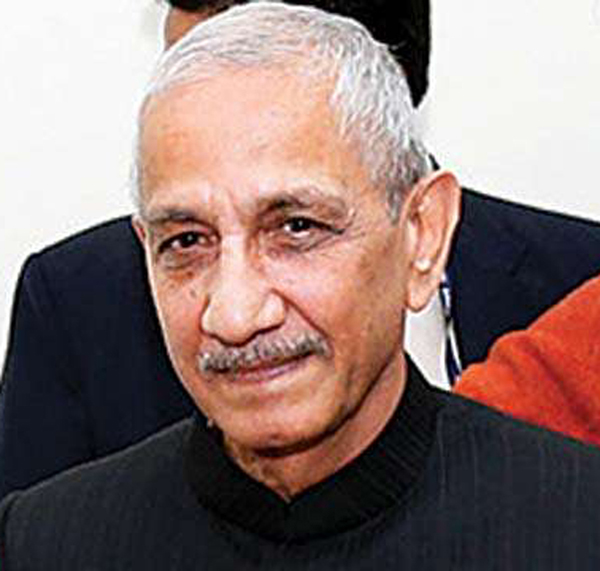Excelsior Correspondent
JAMMU, Oct 27: Dineshwar Sharma, the Centre Government’s Special Representative on Jammu and Kashmir said today that his mission is to end violence in Kashmir and declared that he was ready to talk to anyone even a rickshaw or a cart puller. He also said that he would look into all previous reports on Kashmir including those submitted by former Interlocutors for firming up an opinion.
In interview given to a news agency in New Delhi today, Dineshwar, who was appointed as Centre’s Special Representative on Kashmir few days back, said he would study the reports of previous Committees also, which had gone into Jammu and Kashmir situation.
On whether he would talk to representatives of Pakistan occupied Kashmir (PoK) too, he said it was not his mandate.
“I will first visit Jammu and Kashmir and then take a call, which groups need to be engaged first in the dialogue,” he added.
“I feel the pain and sometimes I become emotional also. I want to see this kind of violence ends as soon as possible from all sides. The youth of Kashmir especially the militants get hype when they talk about (establishing Islamic) caliphate,” Sharma said.
“I am worried about the people of Kashmir. If the radicalization picked up, the situation will be like Yemen, Syria and Libya. People will start fighting in so many groups. So, it is very important that everybody, all of us, contribute so that suffering of Kashmiris end,” Dineshwar said.
“I will have to convince the youth of Kashmir that they are only ruining their future and the future of all Kashmiris in the name of whether they call it azadi (independence), Islamic caliphate or Islam. You can take examples like Pakistan, Libya, Yemen or any country where such things are going. They have become the most violent places in the world.”
Dineshwar, who was appointed as Centre’s Special Representative on Kashmir few days back, said the radicalization could ultimately finish the Kashmir society itself and there was need to address the issue.
He said he was personally pained to see the Kashmiri youths taking to violence and radicalization that had the potential to destroy the society itself and his priority would be to talk to all sections of people and get the cycle of violence stopped.
Asserting that he was open to talk to everybody, he said he would speak to ordinary students, youths, workers and anyone, who is ready to talk to get some good ideas for consideration.
When the IB was investigating the fledgling modules of the Islamic State in Kerala, Maharashtra and Andhra Pradesh in 2015, Sharma was widely known to have advocated a policy of arresting the problem by counseling and reforming, instead of arresting the potential recruits of the global terror network.
Serving in Kashmir as an IB man, Sharma was instrumental in the arrest of then Hizbul Mujahideen commander Master Ahsan Dar in 1993 after he broke away from Syed Salahuddin, the Hizb chief based in PoK.
He recalled how he had met Dar in Srinagar jails and how the militant commander asked him to bring his daughter and son to meet him in the prison. “I actually took them to meet him.”
Asked if he had identified the way to reach out to the youth in Kashmir, Sharma said he was still working out the modalities.
To a question on dialogue with Hurriyat Conference leaders, Sharma said: “Let me see. I am ready to talk to everybody. Anybody who wants to contribute to peace”.
Replying to a query that radicalization of Kashmiri youth was a more recent phenomenon than the problem of Kashmir itself, Sharma said the State was almost at peace before the 2008 unrest over a land row and the 2016 wave of violent street protests after the killing of Burhan Wani.
“Somehow the minds of youths and students have been diverted somewhere else. That is the point of address. I have seen the violence in Kashmir from very close quarters. I was posted in Srinagar. So the kind of violence I have seen, I am really pained. I am very sad,” he added.
Commenting on previous attempts by the Government of nominating peace emissaries and other initiatives to solve the problem, he said he would “desperately like to try some new ideas”.
Trending Now
E-Paper


